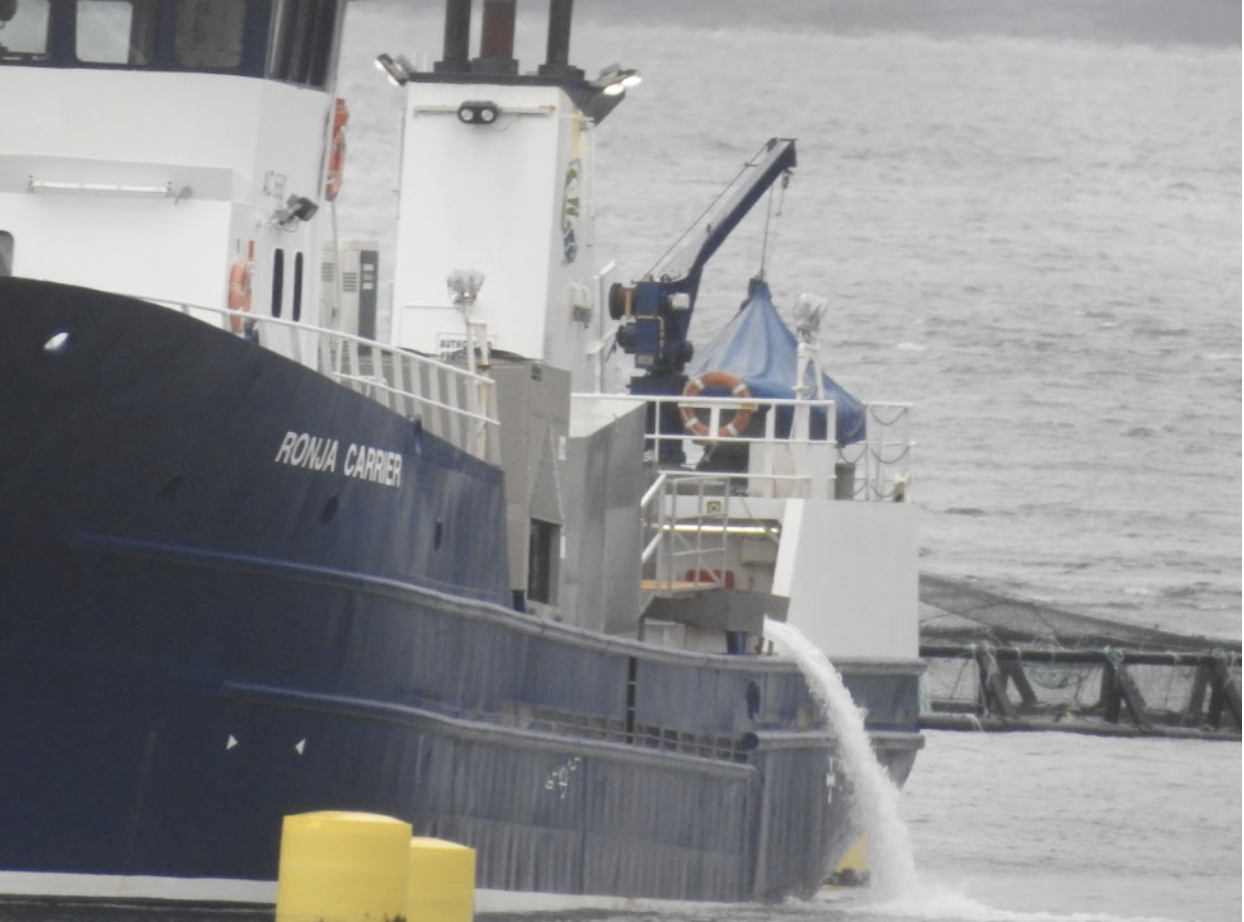A quick update from Protect Maine’s Fishing Heritage Foundation
Industrial scale salmon farming
This video from Tasmania was just released and is a good example of what is happening worldwide as people learn more about industrial scale fin fish farming. The video is dramatic and shows the spinal deformities and feces that come from industrial scale farming.
As you may recall, Argentina has banned net pen salmon. In Washington State, net pen salmon is in the crosshairs. But in Maine, we are recruiting salmon aquaculture , one of the dirtiest polluters, to our waters.
Maine - Open for pollution
In Maine, we have little access to information about what is going on at the net pen salmon farms. Protect Maine has stated before, Maine did away with its dive program underneath the salmon pens more than 2 decades ago. Maine relies on the corporate owner of the farm to video tape what is happening beneath the surface. But even after 116,000 fish died at Cooke’s pens off Swans Island regulators were unwilling to look at the environmental impacts. According to emails from DMR and DEP fish were taken to a composting pile in Tremont.
Composting Pile, Tremont, Maine
The picture paints a story about the aftermath. But hidden below the surface is the immediate impact of that kind of die off from the salmon farm and an unwillingness to look at it.
The below was obtained through a Freedom of Access Act request:
August 30, 2021: Department of Marine Resources (DMR): “Is there a plan to conduct a dive?”
August 30, 2021 : Department of Environmental Protection (DEP) :“No.”
August 30, 2021: DMR “Cooke is not collecting videos for us at this time. Although we have the authority to ask for videos…should we start collecting that information and potentially having to then take action.”
The state eventually did dive underneath the pens - two months after the die off. The state reported the environment good - and renewed Cooke’s lease for 20 years.
Cooke’s net pen aquaculture operation in Washington state is under fire and going through legal appeals after regulators began the process of shutting it down. Cooke leases more than 600 acres of pens in downeast Maine. As states and entire countries ban salmon aquaculture polluters, Maine has made itself a target for net pen salmon with weak regulations and even weaker enforcement. We are creating our own nightmare in our oceans.
Other issues largely unknown
In January of this year Infectious Salmon Anemia (ISA) was detected in the pens at Southbay in Cobscook bay in Downeast Maine. A ship was dispatched from headquarters in Canada to empty the pens. ISA can be harmful if fish escape into the wild population. This is one of the Cooke salmon pen sites.
Ronja Carrier enroute from Cooke Aquaculture headquarters in Canada to Maine to deal with ISA detection
Ronja Carrier at South Bay where ISA detection happened
Earlier this month, seals breached Cooke’s salmon net pens leading to more farmed fish escapes into the wild.
Bivalves
Last summer an algae bloom cost clammers hundreds of thousands of dollars in Maquoit Bay in Brunswick.
Residents are asking questions about the largest industrial aquaculture lease in Cumberland County involving the 34 acre Mere Point Oyster lease. Residents have turned in over 100 signatures to the town council requesting testing specifically around the industrial aquaculture site to confirm if it is or is not part of what caused the bloom. You would think that any oyster company would be eager and willing to test the area around their site.
Residents have taken their concerns to Brunswick town hall. They attend council meetings and have met separately with the town manager. It is clear this continues to be an uphill battle.
The request for proposal (RFP) regarding water quality testing has not a single word in it about aquaculture. After citizens refused to give up, a meeting on Wednesday forced the issue back to the table on the RFP.
The pictures below show what is washing up on the shores.
We will continue our work to protect the environment and ensure that everyone can work, enjoy, and make a living along the coast of Maine.
We can’t do this work without your support. Please consider donating this week.






